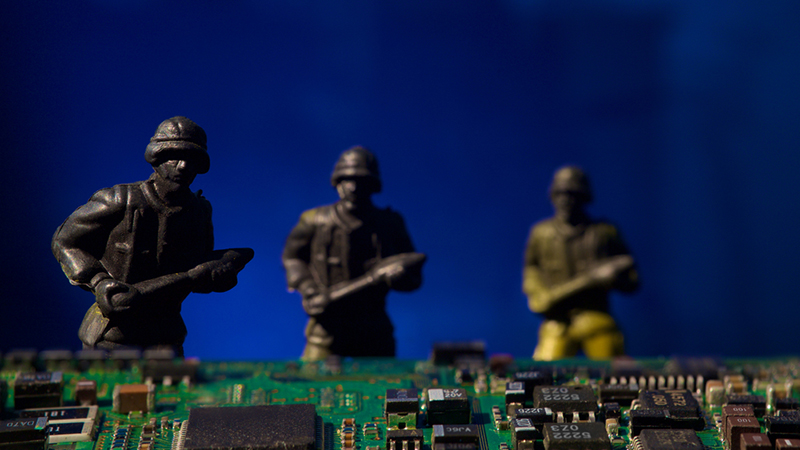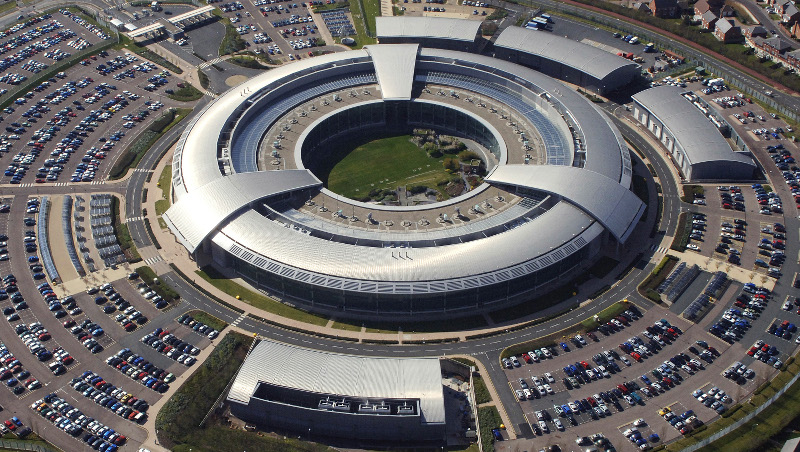Are we in the midst of a cyber war?
Trump's decision to attack Iran with digital weapons offers us a glimpse into the future of conflict


If there's one thing the security community enjoys talking about more than the latest ransomware attack or the potential of a (witting or unwitting) insider threat, it's cyber warfare.
I've spoken and written innumerable times about incidents of suspected state-level attacks, with the 2007 DDoS attack that knocked out swathes of Estonian infrastructure being one of the most notable, as well as the BlackEnergy attacks in Ukraine ten years later.
The rhetoric has always been fairly apocalyptic - attacks that could take out the National Grid, cut off access to clean water, crash trains and planes. Crises on a par with a natural disaster or, indeed, conventional warfare.
While what happened to Estonia and Ukraine was no joke, cyber weapons are often more insidious. Stuxnet, long thought to have been a joint development by Israel's Mossad and the American Department of Defense, quietly and covertly sabotaged Iranian nuclear facilities for at least a year before its existence became public.
Indeed, the less explosive nature of cyber warfare has made it more attractive to some global leaders, as we recently found out care of US president Donald Trump.
It's alleged that the US launched a cyber attack on Iranian weapons systems on 18 June rather than using ballistic weapons. While there's been no official comment on the cyber strike, Trump has publicly said he pulled out of using conventional weapons when told doing so could kill in excess of 150 people.
Indeed, Splunk's SVP of security markets told CNBC the move was "game changing" and could remould "how we think about geopolitics".
Sign up today and you will receive a free copy of our Future Focus 2025 report - the leading guidance on AI, cybersecurity and other IT challenges as per 700+ senior executives
And herein lies the rub. The information security industry, political talking heads and indeed journalists have all expected cyber warfare to be like something out of film or TV. Suddenly, our national infrastructure is crippled and people die en masse of cold or heat, from cholera and e.coli. The lights go out and never come back on again. 24-hour rolling news grinds to a halt.
This is certainly more exciting to write and talk about than cyber warfare as a way of saving, or at least minimising, loss of life. But perhaps it's not so bad if that, rather than a Terminator-style scenario, is the reality.

Jane McCallion is Managing Editor of ITPro and ChannelPro, specializing in data centers, enterprise IT infrastructure, and cybersecurity. Before becoming Managing Editor, she held the role of Deputy Editor and, prior to that, Features Editor, managing a pool of freelance and internal writers, while continuing to specialize in enterprise IT infrastructure, and business strategy.
Prior to joining ITPro, Jane was a freelance business journalist writing as both Jane McCallion and Jane Bordenave for titles such as European CEO, World Finance, and Business Excellence Magazine.
-
 Trump's AI executive order could leave US in a 'regulatory vacuum'
Trump's AI executive order could leave US in a 'regulatory vacuum'News Citing a "patchwork of 50 different regulatory regimes" and "ideological bias", President Trump wants rules to be set at a federal level
-
 TPUs: Google's home advantage
TPUs: Google's home advantageITPro Podcast How does TPU v7 stack up against Nvidia's latest chips – and can Google scale AI using only its own supply?
-
 GCHQ brands claims it wiretapped Trump "utterly ridiculous"
GCHQ brands claims it wiretapped Trump "utterly ridiculous"News Fox analyst Andrew Napolitano suggested that Obama used the British spy agency to wiretap Trump
-
 US has 'no strategy' for dealing with Russian cyber attack, says McCain
US has 'no strategy' for dealing with Russian cyber attack, says McCainNews Trump administration blasted by former candidate
-
 Trump pledges to engage in "cyberwarfare"
Trump pledges to engage in "cyberwarfare"News President's foreign policy promises "peace through strength"
-
 Rudy Giuliani's security company website suffers outage
Rudy Giuliani's security company website suffers outageNews Giuliani Security goes down shortly after former NYC mayor's advisory role announced
-
 Donald Trump: Russia was likely behind DNC hack
Donald Trump: Russia was likely behind DNC hackNews But Trump says Democrat security systems were not tight enough
-
 Donald Trump's hotel business 'targeted by cyber terrorists'
Donald Trump's hotel business 'targeted by cyber terrorists'News Credit card systems at Trump Hotels hacked for second time in a year
-
 Trump wants internet banned to stop radicalisation
Trump wants internet banned to stop radicalisationNews The presidential candidate claims shutting down the entire internet is the answer to preventing terrorism